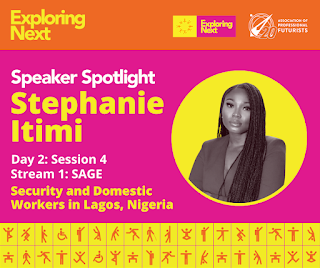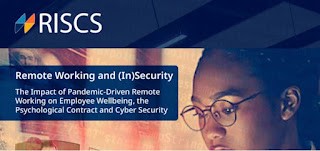Third year CDT student Stephanie Itimi has had a busy start to the summer, promoting Seidea (a career development platform she formed aimed at helping black and ethnic minorities build career in cyber security), speaking at conferences and visiting Senegal!
Catch up with her great interview with peepsec and read her stories in the links below
PeepSec Conference
Cybersecurity is a growing concern in today’s digital world. I was invited to speak at CybSafe's June PeepSec conference, which addressed the human side of cybersecurity. I spoke about how we can diversify our cyber security efforts and create more opportunities for people who want them. Increased investment in training programs helps bridge gaps that can arise when it comes to hiring employees or developing new strategies. If you don't have enough talent, how effective are our cybersecurity policies, not only at the micro level, but also at the macro level? The UK is facing an alarming shortage within its own borders. 653 300 British companies currently lack the essential skills needed today. Digital resilience will also become increasingly important over time, as many experts predict that major hacks will attract everyone's attention again. So why wait another year before changes are implemented? By taking a forward-looking approach, companies help fill the skills gap and diversify the industry, which is in my opinion a win-win situation.
FruitionX Football Management Internship
In May, I had the opportunity to do a lifelong internship in Senegal that focused on football management and agriculture. My first week started with me going to Fattick Village, where we helped women develop their chicken coop (a type of food). We also learned more about farming practices in different types of fruits and participated in the the fishing industry while there. The second week took place in Dakar, where we participated in cultural activities, learned about Senegal's history and worked with NBA Africa. The last week took place in Sally, where we worked at Dambars Football Academy. We also got to interact with the Senegal football team, attend their AFCON qualifiers game with Benin, and interview some team players who also play for English football teams. One of my favourite parts of the internship was to learn the use of artificial intelligence, advanced statistical modelling and how these two components are used to formulate sports performance metrics. It has definitely changed the way I view the use of cameras, visual images, and the type of data that can be collected and analysed. I hope to use this knowledge to improve my understanding of my research area, which looks at care, ethics and surveillance within the home, and how these components have affected the security dynamics between domestic workers and their employers.
Association of Professional Futurists Conference
I attended the Association of Professional Futurists' People, Place, and Systems conference in June. I was accepted to present my study on Place, where I expanded my summer project "The Security Practices Targeted at Domestic Workers in Lagos Nigeria." My talk included the research objectives, methods, results and implications. Trust and monitoring were linked by the data. Some domestic employees saw surveillance as a way to acquire their employers' trust, while others saw it as mistrust. Looking at the broader ramifications of employee surveillance, it is unknown what the future holds for certain, but we can make some predictions based on present statistics. According to TUC, employee monitoring has increased. TUC's report found that three in five workers experienced surveillance at work last year, with devices and phone calls monitored during the COVID pandemic. The resistance of workers has also increased, as evidenced by the current strike of workers with train drivers, barristers and most recently airline workers. I believe my thesis, which examines the security dynamics of domestic workers with their employers, can help understand a global South perspective on employee monitoring. It also provides ideas about what the future of employer and employee relationships might look like, as more people work from home and employers are forced to respond to this new way of working. These were the futuristic topics I discussed at the conference. The presentation was well received, and I was able to make some contacts in the resistance spaces of trade unions and workers that I would like to use for my doctoral research.




Comments
Post a Comment